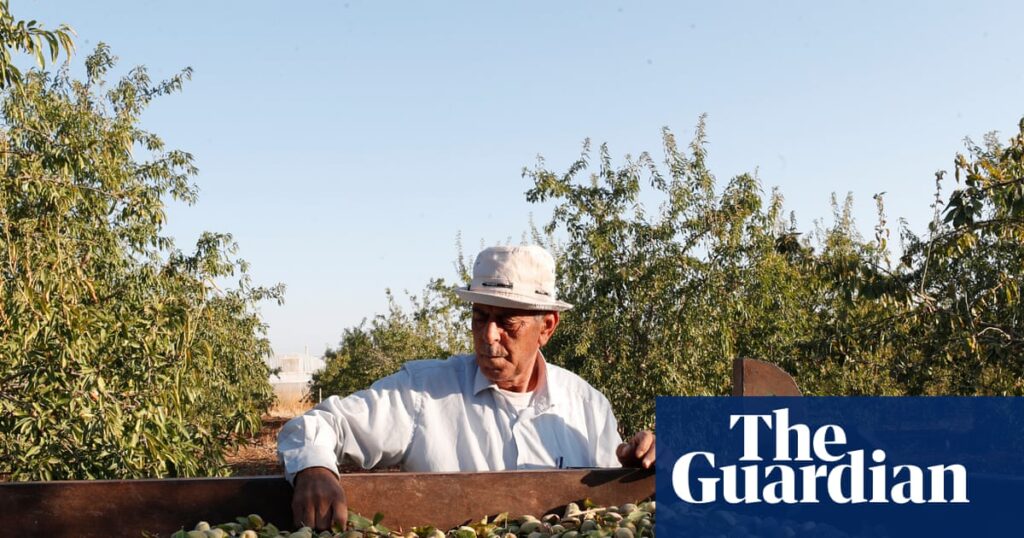A Palestinian food brand says its UK sales increased by 50% to £3.2m in 2024 as shoppers seek out its olive oil in solidarity with Palestinians in Gaza and the West Bank.
Zaytoun, the Arabic word for olives, is a social enterprise set up to support the resilience of Palestinian communities through fair trade.
Buying the territory’s extra virgin olive oil and medjool dates has offered consumers a tangible way to help Palestinians, said Zaytoun’s managing director, Manal Ramadan White.
“They could hold it in their hand and say, I have done this, even if it’s a small act,” she said. The steep sales increase showed “people wanting to make a difference with their purchasing power”, she added.
At this time of year a marketing push by the Fairtrade Foundation seeks to increase awareness and sales of food and drink that carry the charity’s ethical stamp.
The logo is a guarantee that producers receive a set minimum price, as well as an additional sum called the Fairtrade premium, which goes into a communal fund for workers and farmers to use as they see fit. In 2024 UK sales of Fairtrade products including coffee, tea and bananas generated £28m in premiums.
However, shoppers looking for the distinctive logo will not find it on Zaytoun’s olive oil. That is because the security situation means no one is able to complete the checks required for certification.
“We haven’t been able to get Fairtrade organic certified olive oil out of Palestine for almost a year now,” said Ramadan White. “The certifier pulled out at very short notice and without a handover.”
In a statement published on Thursday, the Fairtrade Foundation and wider fair trade movement vowed to “raise our voices in solidarity with the people of Gaza and the West Bank whose futures are being deliberately dismantled”.
Eleanor Harrison, the Fairtrade Foundation’s chief executive, said that as a movement “we believe that every person has the right to live and work in safety and determine their own future”.
She added: “We stand for fairness, solidarity, and the empowerment of people to decide on their own futures. We cannot remain silent while the foundations of life are being destroyed.”
Zaytoun is still buying the “same” olive oil from small-scale farmers in the West Bank, and has high hopes that a new local auditor will be in place to certify the new harvest. The 500ml bottles sell for about £15.
The images of destruction in Gaza make it hard to conceive of agricultural production. But olive farming is integral to most of rural Palestine, said Ramadan White. “The landscape is dotted with olive trees … most families have some whether it’s 20 or thousands.
“The hardiness of the olive tree, what it can withstand, is very much symbolic to Palestinians. It’s a metaphor for their resilience and hardiness through all these challenging times.”
While demand for Zaytoun products, which include almonds and giant couscous, has been strong, keeping the show on the road has not been easy.
Its products ship from the Israeli port of Haifa but the journey is protracted. The vehicles must make detours to go through checkpoints, and the pallets need to be stacked far lower than capacity to allow sniffer dogs to jump over them.
What seemed like an “impossible situation” in 2004 when Zaytoun started as a volunteer-led initiative by a group of friends inspired by a trip to Palestine, has only got worse, Ramadan White said.
“But we’ve seen the demand here match that escalation … From 2023 to 2024 we grew by about 50% due to the UK market wanting to show support in some way.”
She said that at the outset people questioned whether Zaytoun was a viable business. “The products are really expensive to buy, so there’s not much profit margin,” she said, adding that the “price points are really high here for consumers, so people thought they wouldn’t buy them”.
“It was just an act that then took off thanks to people responding to it. At no point did it feel like a thing that had any kind of longevity.”
“Yet 21 years later, here we are.”

